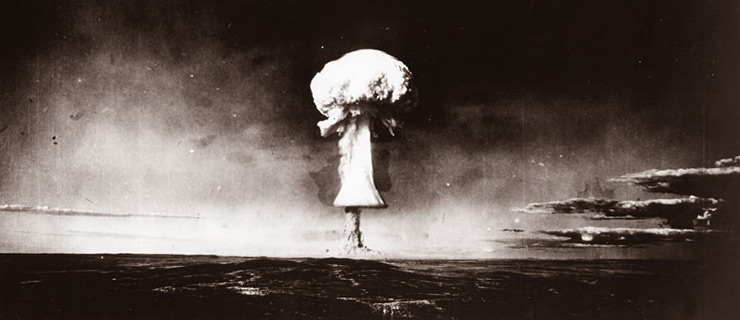
Reprinted from the Astana Times
As we have underlined on many occasions, we are living in deeply uncertain times. Our world faces complex challenges and threats that put at risk all we have achieved and all our hopes for the future.
The global economy remains weak. While we may have agreed on the threat that climate change poses, we are still a long way from taking the collective action needed. Extremist groups put at risk our safety and stability. And their menace is linked to nuclear weapons.
Last month, the new British Prime Minister Theresa May, reminded us that “the nuclear threat has not gone away, if anything, it has increased.” Former U.S. Defence Secretary William Perry also warned that the nuclear threat is greater today than during the Cold War. These stark warnings are based on concerns that terrorist groups, such as ISIS, are actively seeking to get hold of the material and technology to build nuclear weapons. The international community must step up its counterterrorism efforts to prevent these evil and dangerous groups from achieving their objective.
Of course, it is not all bad news. There has been a significant global reduction in nuclear weapons and nuclear material stockpiles. Dozens of countries are now free of weapons-grade materials. Central Asia is among the regions which are nuclear weapons-free zones, thanks to the initiative of Kazakhstan and its regional partners. But there are still approximately 16,000 nuclear weapons in the world.
It is against this background that Kazakhstan, and the world, is to mark the 25th anniversary of the closing of the Semipalatinsk nuclear test site. It is an event with a huge significance for our country, which is one of the few to have suffered the horror and devastation that nuclear explosions cause. It is why Kazakhstan has taken the lead in the global campaign to move to a world free of nuclear weapons.
The international conference “Building a Nuclear Weapons Free World” which takes place in Astana on Aug. 29 – the exact anniversary of President Nursultan Nazarbayev’s decision to shut down the test site as Semipalatinsk and now the UN International Day against Nuclear Tests – will add much needed impetus to this important goal. It comes after President Nazarbayev published his manifesto setting out a blueprint for a world without nuclear weapons by 2045 and told the UN this must be the cause of our time.
The conference comes at an important time. The newly established UN Open Ended Working Group on Nuclear Disarmament is preparing to submit its report to the General Assembly on how multilateral progress towards a world free of nuclear weapons can be made. In addition, the discussions can feed into the preparation for the High-Level Meeting of the UN General Assembly on nuclear disarmament, which will begin in two years.
The Astana conference has attracted senior figures from nations that possess nuclear weapons, as well as non-nuclear-weapon states. Political and religious leaders, experts in the field of disarmament, as well as representatives of civil society, international and regional organisations, will take part in the discussions.
As U.S. President Barack Obama has said, moving to a world without nuclear weapons won’t be easy. It requires the courage to take the steps, however small, to achieve this ambition over time. We must hope that the discussions in Astana help us plot the next stage of this journey.
